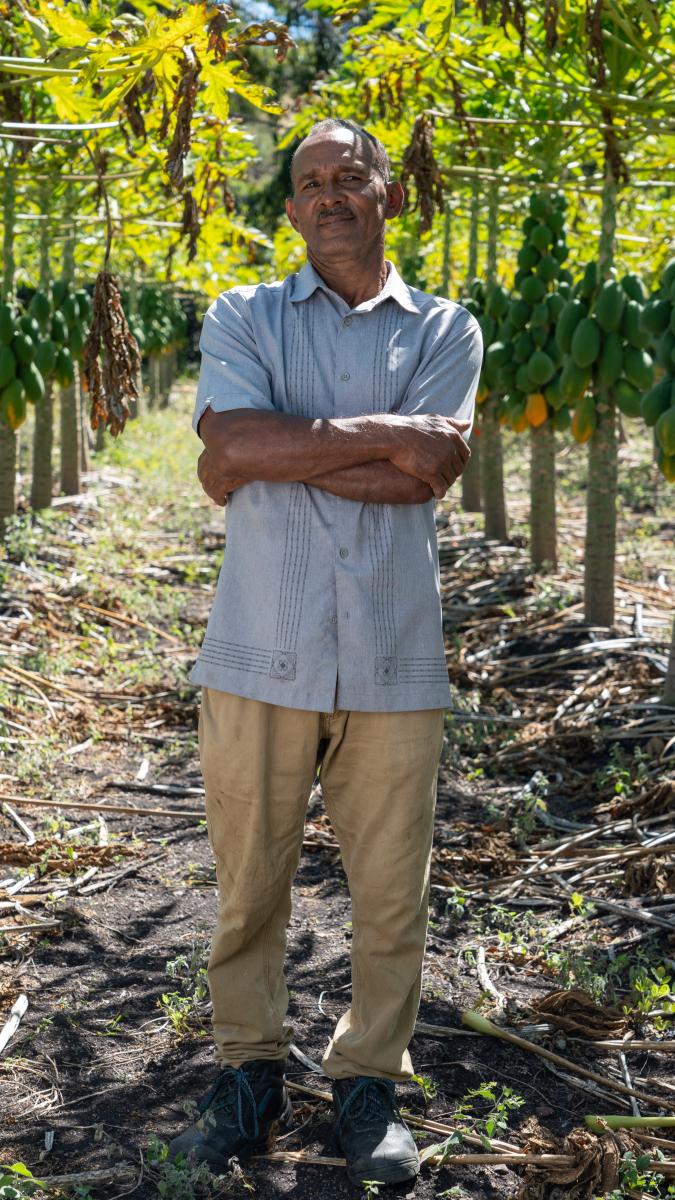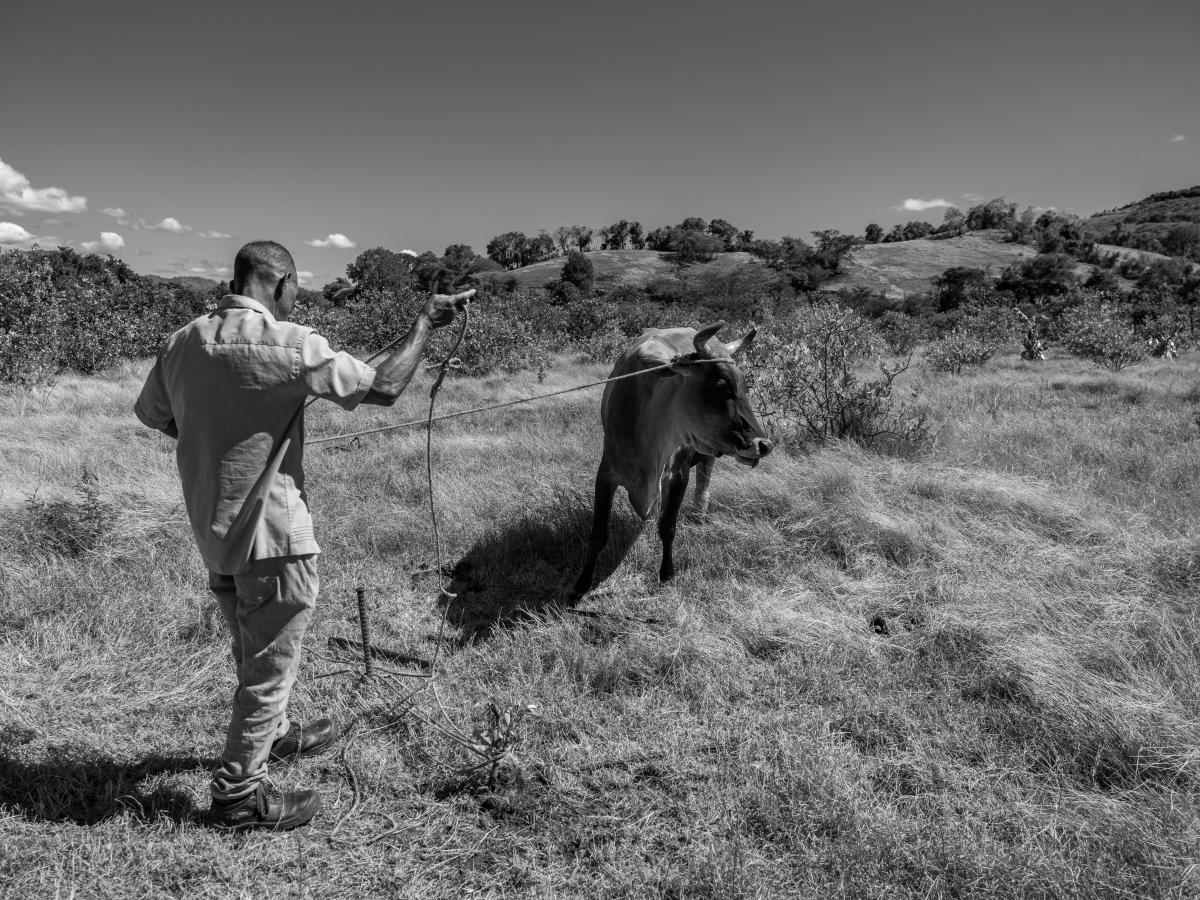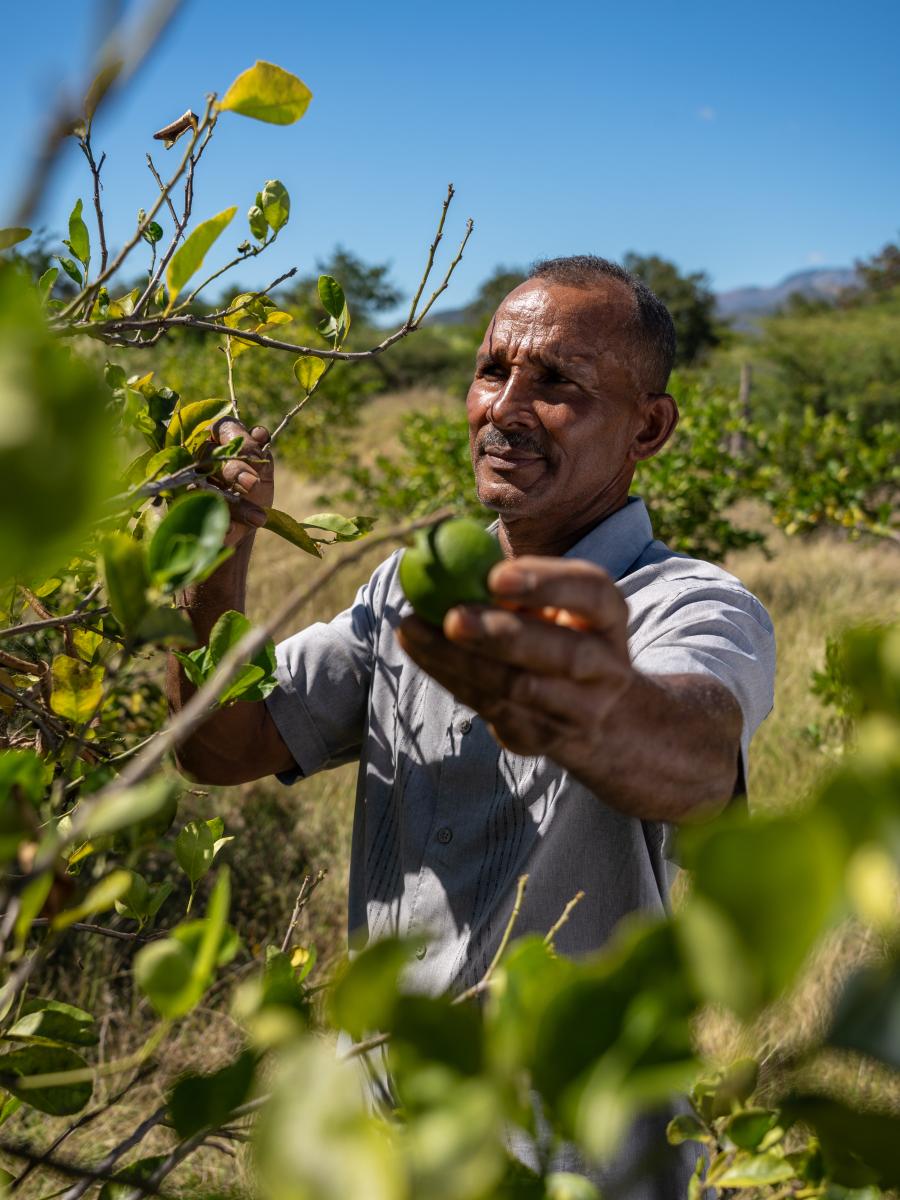When Life Gives You Lemons… or Limes
The Story of Miguel Turbí and how USAID supported farmers in the Dominican Republic
Life is giving BIG lemons to Miguel Turbí, a farmer who started using organic fertilizers in his farm with USAID support.
Dive into his inspiring journey in this article.

The Dominican Republic has led the Caribbean region in improving food security for its citizens. However, dramatic increases in the prices of imported staple foods, fertilizers, and other common agricultural inputs due to the prolonged disruption of the supply chain.
Costs of production of main staples doubled from February 2021 to May 2022. Consequently, Dominicans have been experiencing unusually high levels of socioeconomic vulnerability, potentially leading to food insecurity.
For farmers like Miguel Turbí, in the Dominican Republic, the disruption drove an increase in fertilizer costs, which sparked action from the Dominican Government to subsidize fertilizers in order to avoid an increase in the cost of food. By the end of 2023, the Dominican Government still subsidized fertilizers, allocating RD $ 999,000,000 million pesos (around US $17 million), and provided over a billion pesos (US $ 19 million) in food subsidies to reduce food insecurity and tackle inflation.
Miguel Turbí is a farmer located in Guayabal, which is a small town in the outskirts of San Juan de la Maguana province. This region of the southwestern Dominican Republic is often called the “El Granero del Sur (the barn of the South), meaning that tons of grain and other products are produced in this area. “I sow lemon, papaya, yucca, pumpkin, corn, and sesame seeds,” says Miguel.
The chemical fertilizers Miguel used previously did not help his crop yields. “Before, I produced very little on the farm,” he said. During this time, with the costs of fertilizers rising, many farmers like Miguel Turbí glimpsed support.
In the Dominican Republic, USAID launched its Resilient Agriculture Activity project: an initiative focused on reducing the use of chemical fertilizers, implementing new farming techniques, and increasing access to credit for farmers and producers. This project, implemented by the National Cooperative Business Association CLUSA International (NCBA CLUSA), works in Azua, San Juan, Barahona, and Elías Piña, to support farmers like Miguel to carry out smarter, greener, and more profitable agriculture.

USAID gave Miguel and over 180 farmers the tools to make and use organic fertilizers to support their farming activities. “We participated in workshops about organic fertilizers provided by USAID and NCBA CLUSA. I acquired more knowledge. We practiced with the fertilizers, we manufactured them, and we have been successful placing the fertilizers on our trees.”
Life gave big limes (often called lemons in the Dominican Republic) to Miguel, literally. After applying the organic fertilizers he produced with USAID support, his lemon production, in particular, flourished.
“I am getting cleaner, healthier and bigger lemons, and it is only because of the fertilizers that I have been adding through the guidance that has been given to me through USAID. I have been applying it as I have been told, and my production is improving a lot,” he says.
Now he’s producing more and better. “I am proud to receive the support from USAID because I have been developing my farm with another disposition, another spirit,” says Miguel. “I am really happy”.
____
To date, USAID has helped 188 producers reduce the use of chemical fertilizers and implement new agricultural techniques with the support of the National Cooperative Business Association CLUSA International (NCBA CLUSA). See more of Miguel, in this video.

About this Story
This story was written by Brenda Silverio. Brenda is the Social Media and Multimedia Specialist at USAID in the Dominican Republic.

